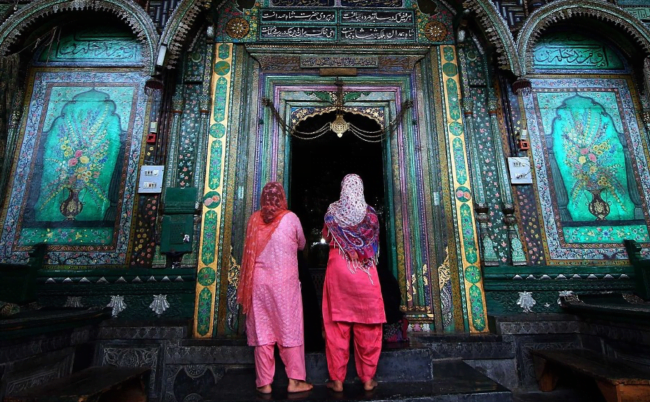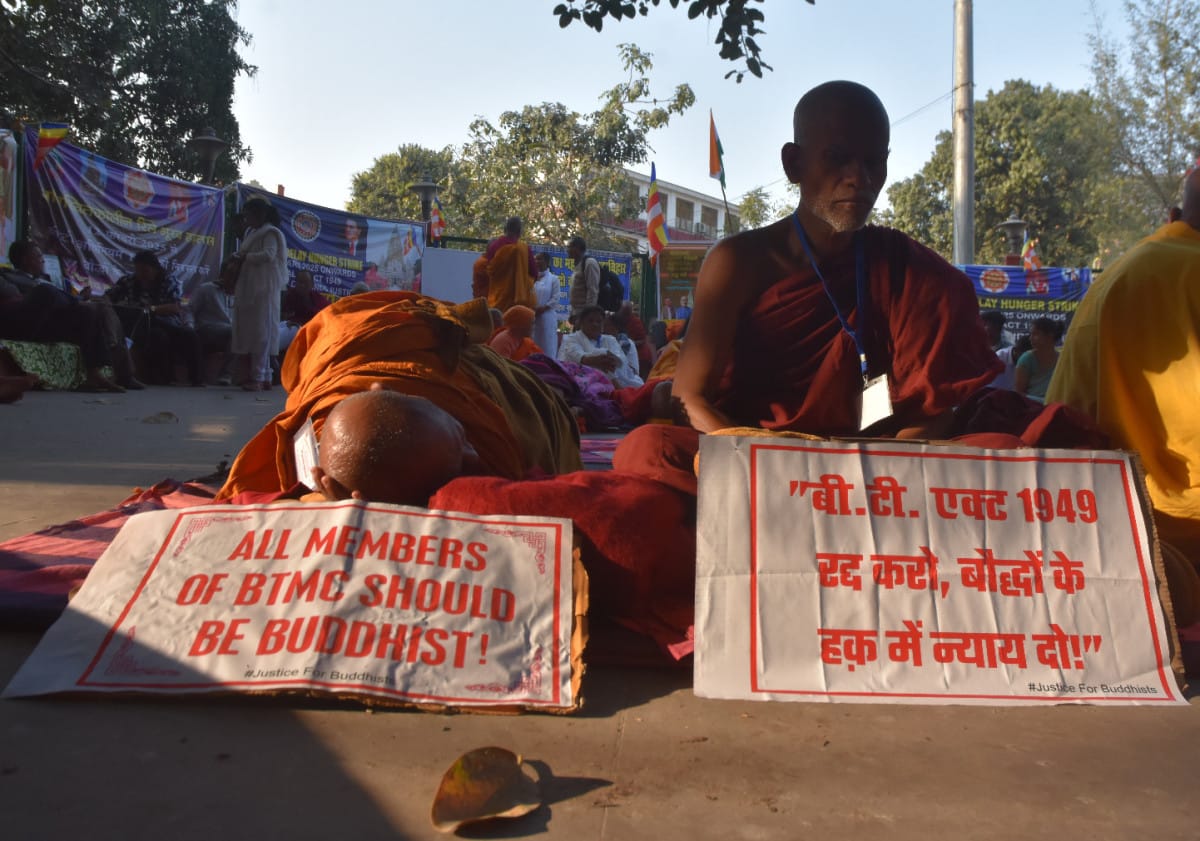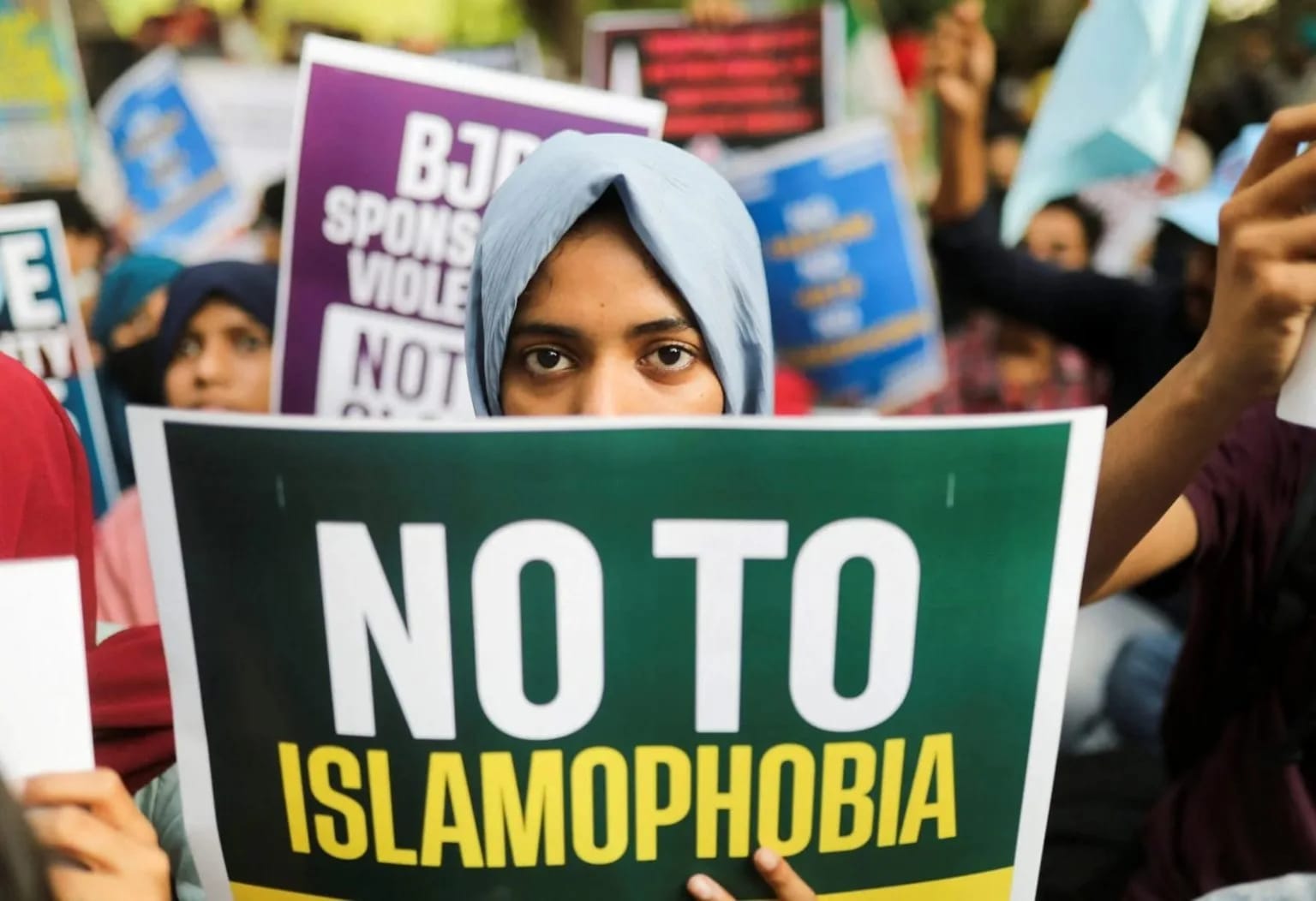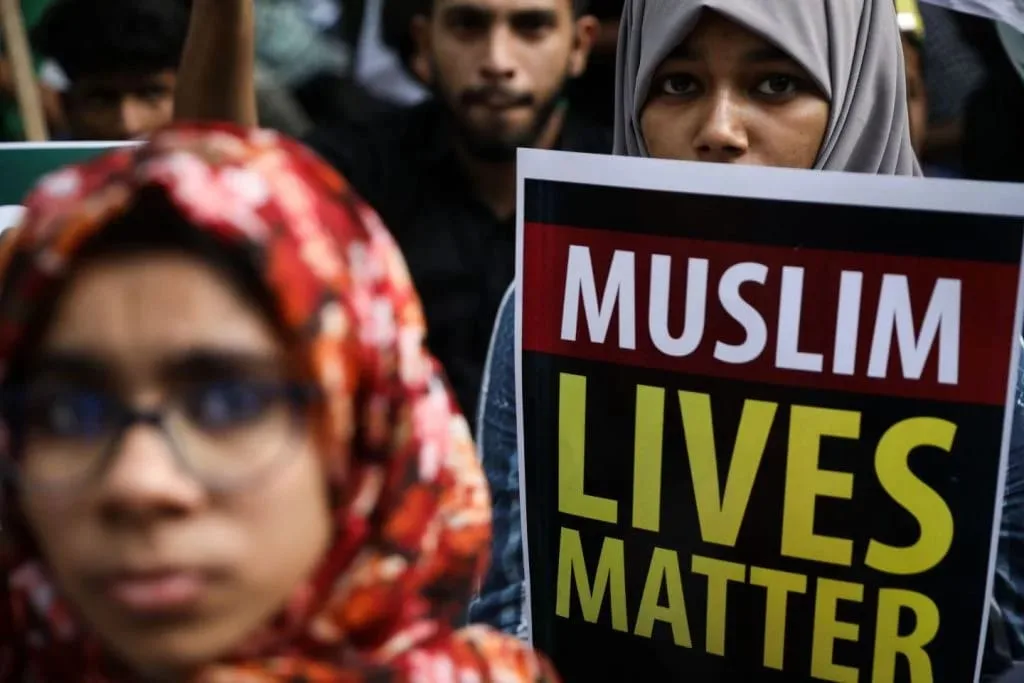Renowned thinker Karl Marx once said that religion is the “opium” of the masses. In a country like India, where one finds both masses and religions in abundance, one sees the effect that this opium has at work.
Being the birthplace of major religions, India is also the birthplace of many religious and spiritual leaders, or as they sometime call themselves—avatars of god (incarnation of god). These religious leaders hold this opium in their hands, and manipulate it as they see fit. With thousands and lakhs of followers, this opium translates into power and this power propagates misogyny.

Whether religion is inherently misogynist is a contested and a long drawn out debate, with both sides constantly scanning ancient texts and defending their faiths. While in some cases the gendered nature of faith is clearly visible, like in the Hindu text Manusmriti, other times it takes years to realize the understated misogyny hidden in religion, like all the symbols of a married women such as sindoor (sacred vermilion) which in reality acts as a red mark that is meant to ward off other men suggesting that the woman is already the property of another man.
Similar is the case with all the religious leaders. Some use their power and control over the masses to abuse women physically, and get away with it in the name of religion; others use the power of words as they let the coils of benevolent sexism and hidden misogyny, crawl from their mouth as sacred commands into the minds of trusting devotes who inculcate and practice them.
Also read: On Feminism, Religion And Right To Worship
Mislead and Mistreat, All in the Name of God
In India, religion permeates all spheres. Political, as in case of vote bank issues, economic, as seen in donations which go to non-taxable temples trusts, and social, for religion is a way of life for millions.
These religious leaders hold this opium in their hands and manipulate it as they see fit. With thousands and lakhs of followers, this opium translates into power and this power propagates misogyny.
However, religion is also deeply personal. This has been proved time and again when political, economic or socially corrective forces have tried to intervene in it. Whether we go back decades to 1985 and look at the landmark case of Shah Bano, or we look just a few back years to the Sabarimala Temple Entry case, the uproar of the masses is massive. Protests, allegations and accusations of threat of religion, and breakdown of secularism are thrown around as missiles in this religious war. Spearheading the masses we saw the religious leaders, in one case the Muslim Ulamas, and in other the Hindu Saints.

Those who claim to ‘safeguard’ and ‘promote’ religious interest as incarnations or spokesmen of god, hold not only the political, economic and social power which is vested in religion but also command the personal allegiance of millions of masses. It is this allegiance and trust that the masses bestow in the religious leaders, that make it easy for them to use their power to manipulate and abuse the trusting devotees who come to them for help or guidance.
All the major faiths in India have seen their share of disgrace by their religious leaders. Among the Hindus, Religious leaders like Asaram Bapu, who own numerous gurukuls and ashrams in India and even have international following, has been found guilty in case of raping minor girls. In 2018, Sanji Ram, a priest in Hindu temple was involved in the rape and murdered of eight year old in Kathua of Jammu and Kashmir.

The year 2018 also saw the arrest of first catholic Indian bishop in case of sexual violence as accused by a nun. Franco Mulakkal was accused by nun of rape over the course of two years. This incident instigated the #MeToo movement among Christians in India, as nuns in large numbers spoke against abuse faced by the hands of men who hold positions of religious power.
However, despite the public public outrage and condemnation of such acts, the abuse of power hasn’t stopped. On July 7, Kerala police arrested Father George TJ for sexually abusing six minors in a shelter home in Kochi. According to reports, the priest had been abusing the boys for six months since December 2018. The abuse was accidentally revealed when some of the victims spoke among themselves after they were punished for coming late to the home.
This case reveals that the religious leaders don’t target only women, but those who they consider to be powerless. The 15 boys inhabiting the shelter home were from families who couldn’t afford to take care of them due to financial problems. George TJ got away with this heinous acts for six months solely because the boys were too afraid, and chose to suffer the abuse in silence than confide in each other. Once they realized that they were facing the abuse together, they decided to alert their parents of the same.
The trust, allegiance and power vested in religious in leaders is a dangerous tool in the hands of a wrong person. Crimes committed by spiritual leaders normalize criminal mentality among their followers. Due to their charismatic persona and ardent following, there are often protests when the leaders are arrested. Hiding behind the farce of religion provides space for nefarious activities.
Also read: Dalai Lama Has Been Sexist Longer Than You Have Known
Sermons of Sexism
Misogyny, patriarchy and discrimination are found not only in the act of these religious leaders but also in their words. This is how the soft dimension of power operates. Soft dimension of power is non-coercive—it shapes the preferences of the masses through appeal and attraction. Their following is based on their persona and their oratory abilities, with occasional carefully performed ‘miracle’ to create an enigmatic and divine aura.
With more and more people believing in their God-like abilities, these self proclaimed god-men don’t need to use physical acts of violence to propagate their sexist ideals among the masses; their words often have more affect than any sort of coercion would.
Once people start to believe their misogynist sermons and practice those in daily life, then what we have in hand is a society driven by sexist religious ideology. The misogynist character of religious leaders is evident in a lot of cases. Asaram Bapu, convicted of raping a minor, was quoted saying that the victim of the Nirbhaya gang rape case was equally at fault as she shouldn’t have stepped on the bus with her boyfriend. Even leaders like Dalai Lama couldn’t hide their inherent patriarchy.
With more and more people believing in their God-like abilities, these self proclaimed God-men don’t need to use physical acts of violence to propagate their sexist ideals among the masses; their words often have more affect than any sort of coercion would.
Recently in an interview with BBC correspondent Rajini Vaidyanathan, Dalai Lama mentioned “If a female Dalai Lama comes, she should be more attractive”. Such statements should not be drowned out in the noise of chuckles. What seems as a joke is actually internalized patriarchy and benevolent sexism at work.
Such twisted thinking and misguided ideology is ingested and propagated by the thousands of followers to turn into vessels of patriarchy in the society. This month itself on 5th July, another religious leader Swami Gyanvatsal, known for giving motivational speeches which urge people to think and act better, showed his own sexist thinking, when he refused to deliver speech as he saw women sitting in the front row.
Swami Gyanvatsal is associated with the Akshardham trust and gives speeches in India and abroad, which are attended by thousands of people. He is a man who speaks to change the lives of people, and he was invited to an event organised by Indian Medical Association (IMA) in Rajasthan to do the same.
However, things did not go as planned for Swami Gyanvatsal’s ego. He had apparently asked the organisers to ensure that no woman must be seated in the front row due to his ‘protocol’. When he arrived backstage, an announcement has made that all women must vacate the first seven rows.
This announcement was met with protests as women wanted to know the reason behind such blatant misogyny. When they were informed that this was his ‘protocol’, many doctors decided to boycott the speech. After talking with the organizers, it was announced that women must vacate the first three rows.
This month itself on 5th July, another religious leader Swami Gyanvatsal, known for giving motivational speeches which urge people to think and act better, showed his own sexist thinking, when he refused to deliver speech as he saw women sitting in the front row.
Despite the nature of the request, some women did decide to move and sit behind in compliance with the request. However, Swami Gyanvatsal was so deeply offended by the idea of women sitting in the front row while he speaks about changing the way one thinks, that he decided to walk away without giving the speech.
Also read: What Is The Role Of Religion In Furthering The Patriarchal Agenda?
For a Swami who calls himself motivational speaker, having a protocol so misogynist and sexist exemplifies that those who label themselves to be the messenger of god are just men with patriarchal mindset and a thirst for power. These men don’t have to resort to violence to keep women subjugated—seemingly innocent words and carefully set ‘protocols’ do the job in a much more silent, hidden and dangerous way.
Featured Image Source: DailyAtheist
About the author(s)
Anisha Maini is a student of Sociology at Jesus and Mary College. She is always ready for a lively discussion on literature, existence of aliens, gender, philosophy, met gala outfits, environment, sexuality, meaning of song lyrics, culture and game of thrones; all over a cup of tea. She believes she'll make a difference.




